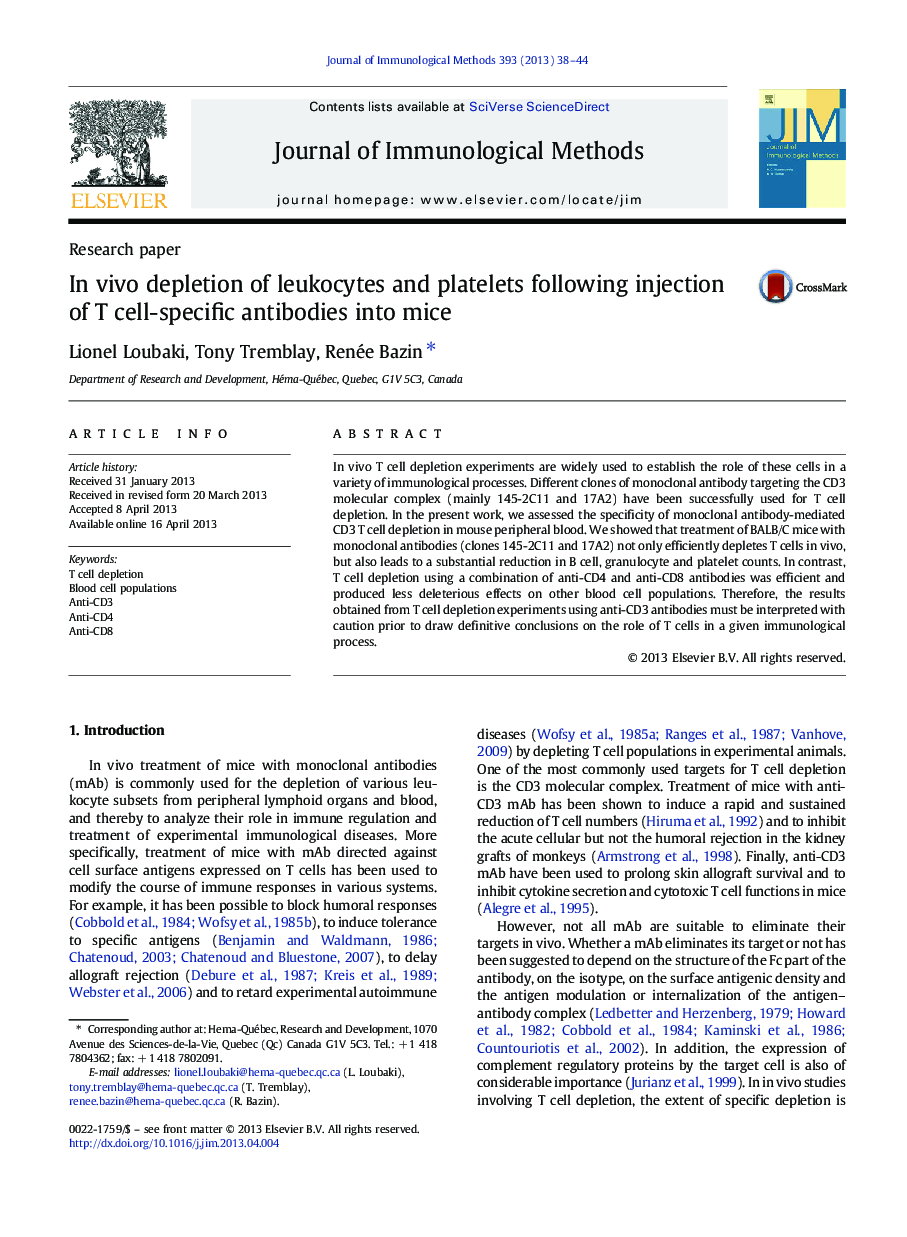| Article ID | Journal | Published Year | Pages | File Type |
|---|---|---|---|---|
| 2088290 | Journal of Immunological Methods | 2013 | 7 Pages |
•T cell depletion using specific antibodies results in depletion of other cell types.•B cells are more affected by anti-CD3 than by anti-CD4/anti-CD8 treatment.•A two-fold reduction in granulocyte counts is observed following T cell depletion.•Platelets are reduced after anti-CD3 but not anti-CD4/anti-CD8 treatment.•Careful monitoring of blood cell populations should be done after T cell depletion.
In vivo T cell depletion experiments are widely used to establish the role of these cells in a variety of immunological processes. Different clones of monoclonal antibody targeting the CD3 molecular complex (mainly 145-2C11 and 17A2) have been successfully used for T cell depletion. In the present work, we assessed the specificity of monoclonal antibody-mediated CD3 T cell depletion in mouse peripheral blood. We showed that treatment of BALB/C mice with monoclonal antibodies (clones 145-2C11 and 17A2) not only efficiently depletes T cells in vivo, but also leads to a substantial reduction in B cell, granulocyte and platelet counts. In contrast, T cell depletion using a combination of anti-CD4 and anti-CD8 antibodies was efficient and produced less deleterious effects on other blood cell populations. Therefore, the results obtained from T cell depletion experiments using anti-CD3 antibodies must be interpreted with caution prior to draw definitive conclusions on the role of T cells in a given immunological process.
